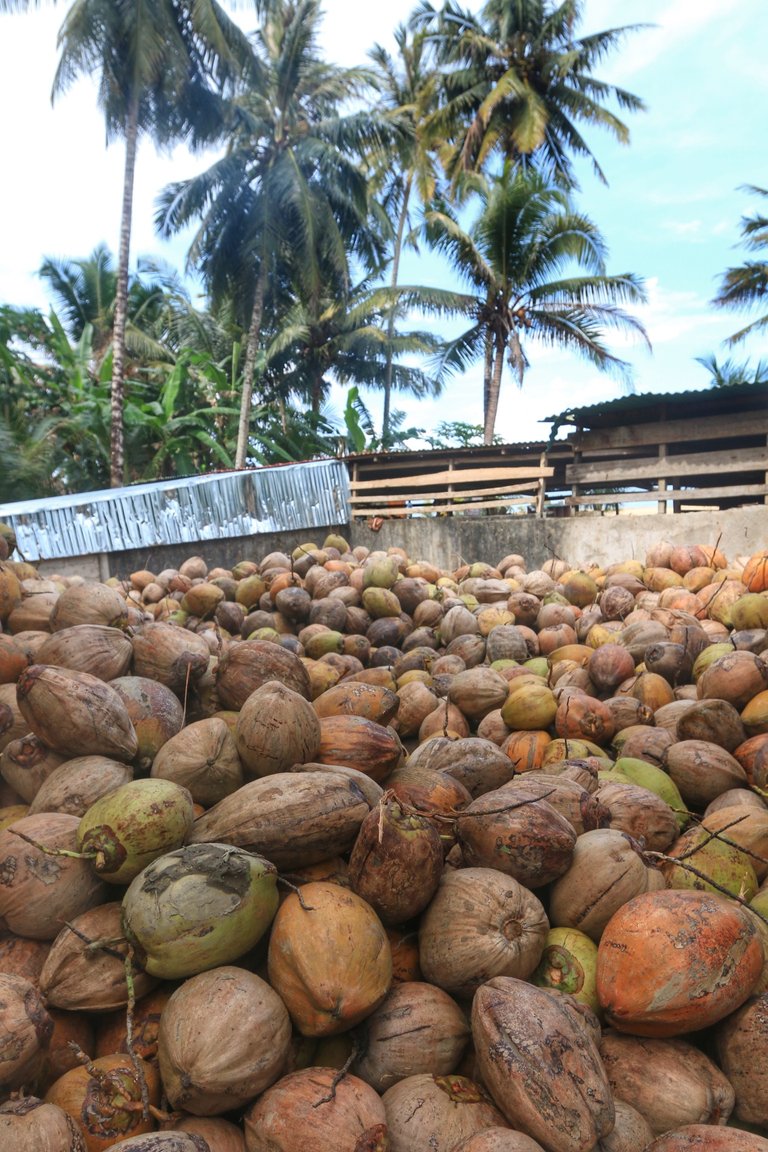
While surfing on Pulau Nias off the coast of Sumatra, Indonesia, I visited a coconut oil factory with two Australians. They were helping the factory to become more efficient and effective at every stage of the process. Other goals were to increase quality, to promote a safer and more sterile working environment.
This short story is about the factory process and not specifically about the improvements.
🥥🏝🥥
Ono Niha Oil is a small-scale establishment located in Lagundri Bay adjacent to the beach. The factory is Indonesian owned and run, employing 30 local people who are involved in all the various stages from start to finish.
Below is the process undertaken to harvest cold-pressed virgin coconut oil that is of export quality.
🥥🏝🥥
Dehusking is performed by 4-6 people. They use a sharp metal spike rooted into the ground. The coconut is placed on to the spike at an angle and rotated until the husk is removed. It is extremely hard work and there were even older men and women performing this task. In one working day, the team can de-husk up to 4000 coconuts! If there were 5 people on the job working for 7 hours it would work out to about 2 coconuts per minute per person.
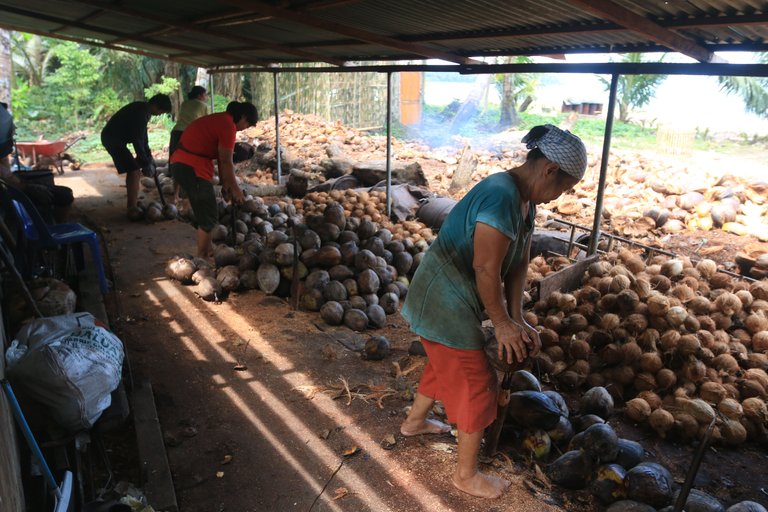
After the husk has been removed, the coconuts are cracked open and the water discarded. There are plans to keep the coconut water in the future. Although the water will not be young, it still is drinkable and has health benefits.
The cracked coconuts are then dispensed into the building through small transfer windows.
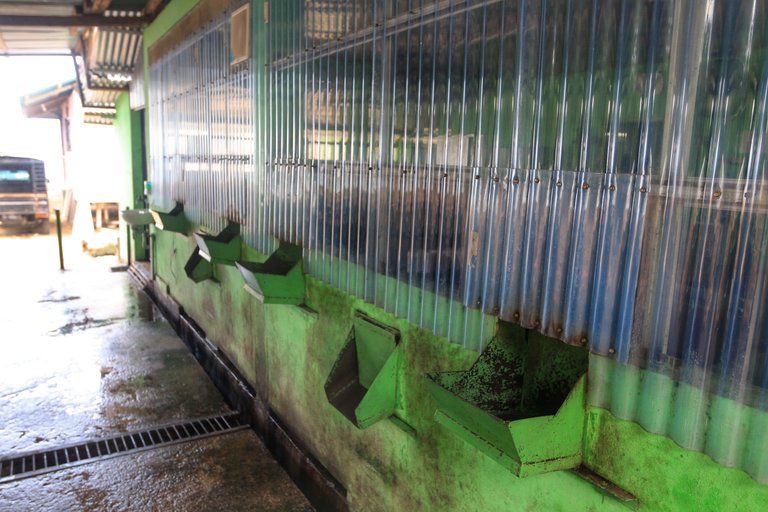
Inside the building a set of coconut meat grinders remove the meat from the shell.
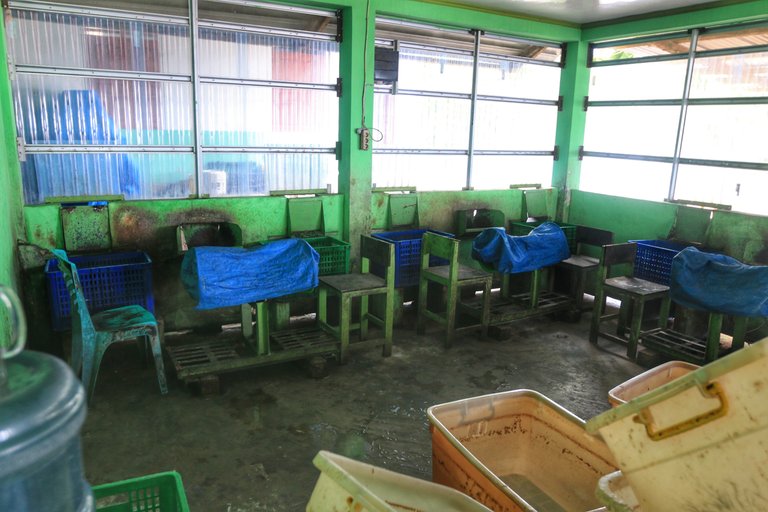
The coconut meat is then pressed in a machine, which removes the oil. Once completed, the left over residue is sent back outside and collected by 10-12 unpaid women, who use it for pig feed.
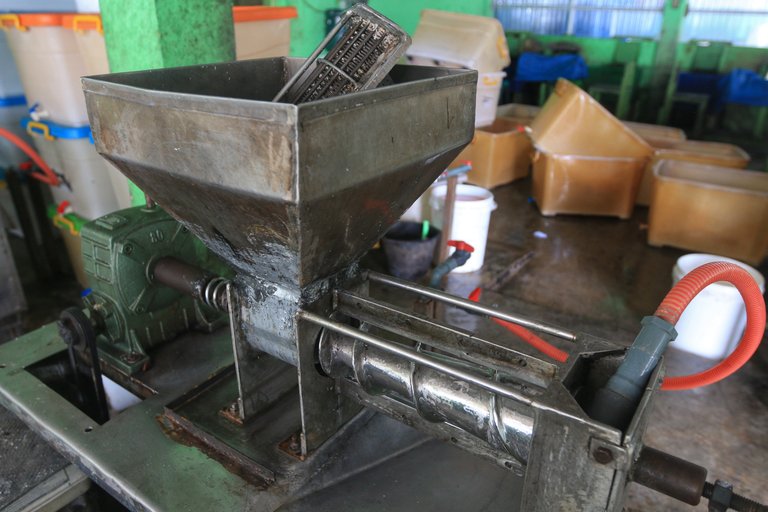
Raw coconut oil is then transferred to the big tubs depicted above and left to stand over night. The following day remaining water is removed with the vacuum evaporator shown in the picture below on the right.
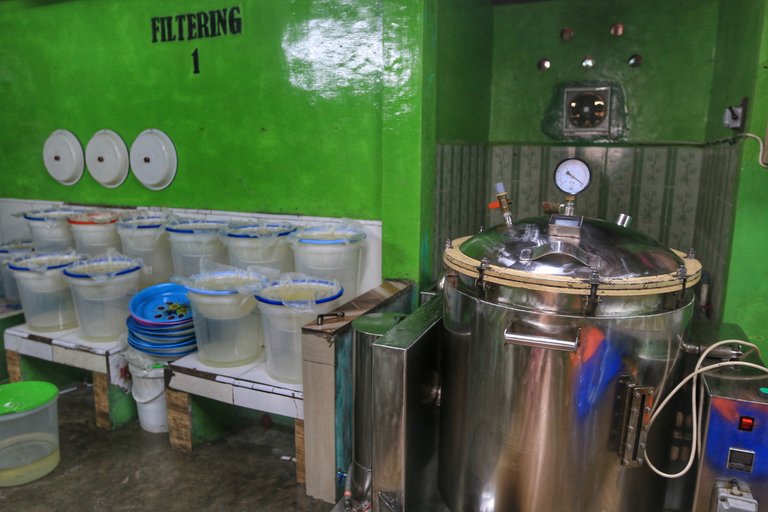
After water has been removed, the oil is filtered in 3 stages. Each filter becomes progressively smaller to filter out smaller unwanted particles.
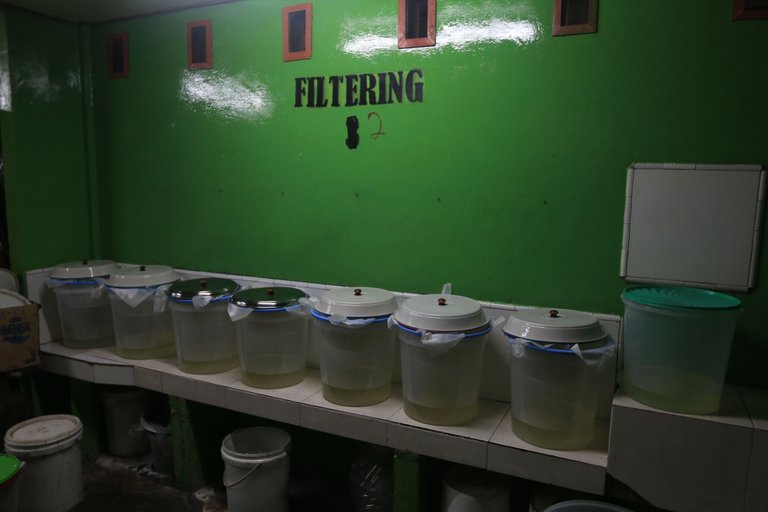
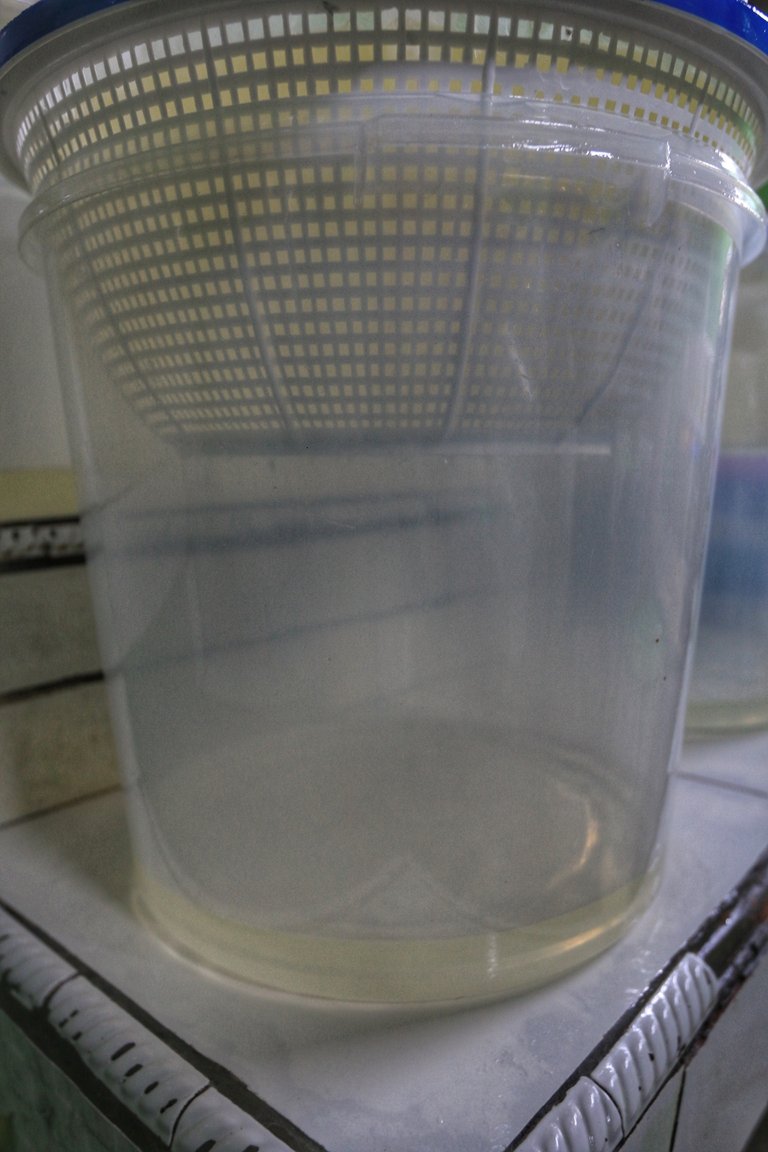
The end result is a clear raw cold-pressed oil, which is exported to the UK for cosmetics. The oil can be used for any application though. From cooking and moisturizing to treating open wounds.
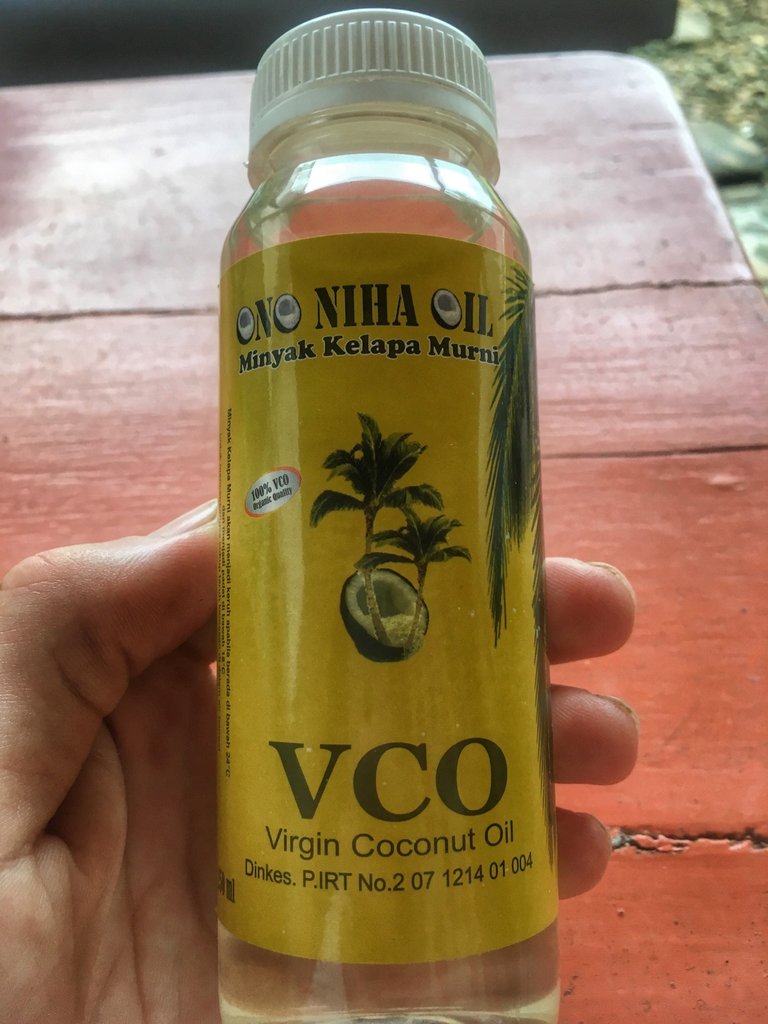
Here is a link to their website: https://www.ononihaoil.co.id